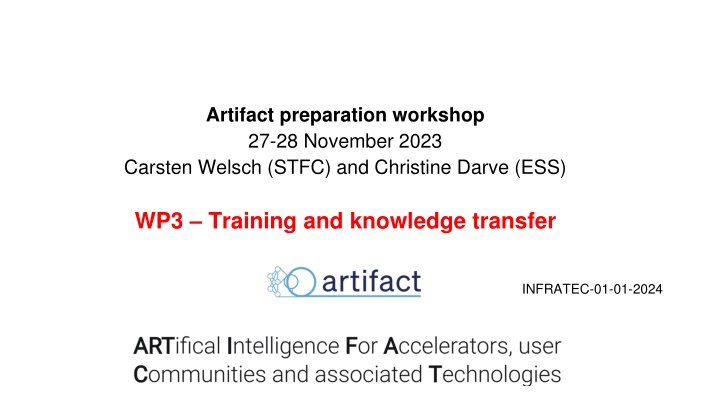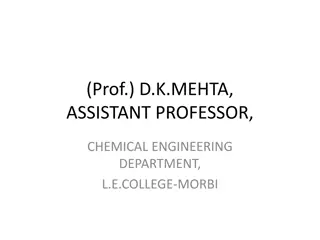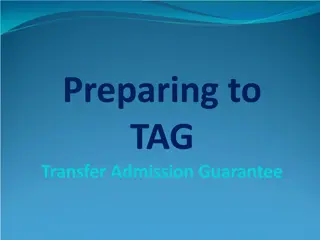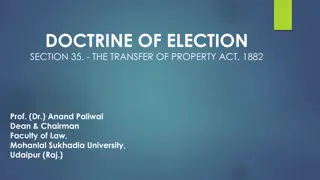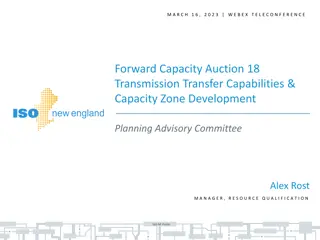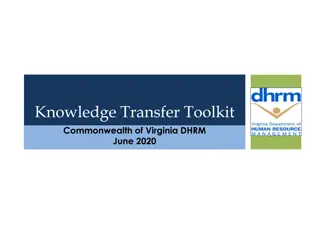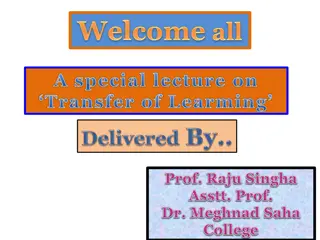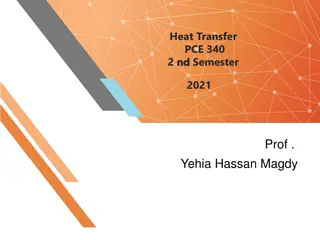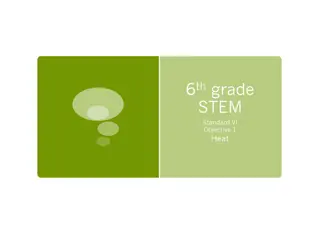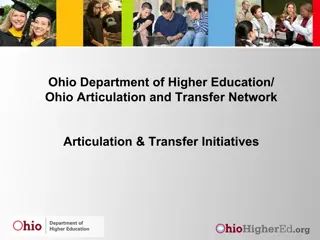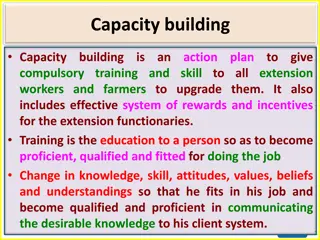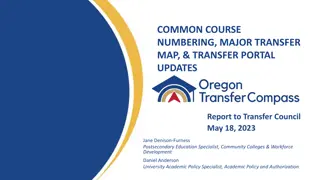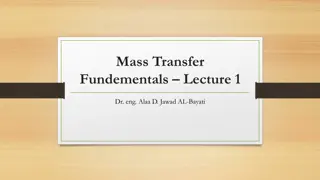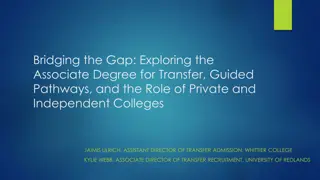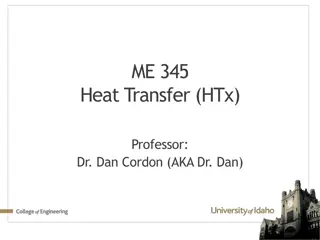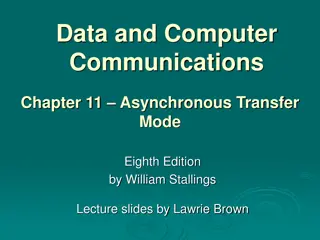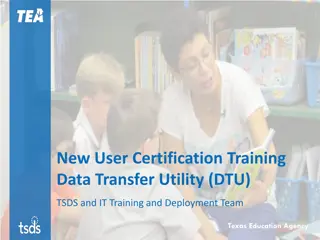Developing Training Initiatives for AI Knowledge Transfer
This initiative aims to develop a comprehensive training program for experts in AI for particle accelerators, focusing on updating content, implementing MOOCs, organizing workshops, hackathons, and promoting lifelong learning. The primary goal is to empower individuals with the necessary skills to contribute to this dynamic field.
Uploaded on Mar 15, 2025 | 2 Views
Download Presentation

Please find below an Image/Link to download the presentation.
The content on the website is provided AS IS for your information and personal use only. It may not be sold, licensed, or shared on other websites without obtaining consent from the author.If you encounter any issues during the download, it is possible that the publisher has removed the file from their server.
You are allowed to download the files provided on this website for personal or commercial use, subject to the condition that they are used lawfully. All files are the property of their respective owners.
The content on the website is provided AS IS for your information and personal use only. It may not be sold, licensed, or shared on other websites without obtaining consent from the author.
E N D
Presentation Transcript
Artifact preparation workshop 27-28 November 2023 Carsten Welsch (STFC) and Christine Darve (ESS) WP3 Training and knowledge transfer INFRATEC-01-01-2024
WP3 Training and knowledge transfer Motivation: Develop activities and platforms to train experts and support knowledge transfer. Objectives: Track progress across other WPs to update training content and syllabus Prepare and implement a short MOOC as background material and pre-requisite for in- person schools and workshops Prepare and implement summer schools and targeted workshops at selected institutes Prepare and implement Hackathons and competitions (and data exchanges), consider DataAid initiative Promote the use of open-source tools and datasets, making training more accessible and industry-aligned Build-up Repositories/library to collect Knowledge (materials, ideas/forum, ML as tool to organize/categorize etc..) Emphasize importance of lifelong learning and develop resources for data scientists to stay up-to-date with evolving technologies and methodologies (e.g. mentorship) Incorporate ethics and responsible data handling in all trainings to improve awareness of potential ethical implications of R&D Establish an online forums for discussing ideas, sharing solutions, and seeking help Current Status: Survey of existing resources and materials Gather ideas based on international demands WP Leader Carsten P Welsch (Cockcroft Institute) Contact : welsch@liverpool.ac.uk WP Deputy Christine Darve (ESS) Contact : christine.darve@ess.eu
Context The primary goal of this Work Package (WP3) is to develop comprehensive activities and platforms that facilitate the training of experts and ensure effective knowledge transfer within the field. WP3 will provide the framework to coordinate and vehicle the insights gathered with the technical ARTIFACT WP (WP4-6). WP3 has a transversal role, as it also includes impact from Accelerator-related technologies, user Communities and associated Technologies. This WP package is based on the recognition of the critical role that well-trained experts play in advancing research and development in AI for particle accelerators. There is a growing need for such experts and hardly any structured training program exist. The aim is to foster a community of highly skilled professionals and support the seamless transfer of knowledge between the different ARTIFACT activities. By establishing targeted training initiatives, the project seeks to empower individuals with the necessary skills to make strong contributions to this dynamic field.
Task description Task 3.1 Tracking Progress (and Updating Content for Training and Knowledge Transfer) One of the primary objectives is to track progress across other work packages to update training content and syllabus continually, based on the research outcomes across ARTIFACT. This will ensure that the training programs stay aligned with the latest advancements in AI for particle accelerators. Natural Language Processing (NLP) can be used as a tool to support the training and knowledge transfer quality. Task 3.2 MOOC Preparation and Implementation Based on previous training events training programs developed by the applicants, short Massive Open Online Courses (MOOCs) will be developed as background material and a prerequisite for the planned ARTIFACT in-person schools and workshops. This approach enhances accessibility and ensures participants have a foundational understanding before engaging in more intensive training programs. Task 3.3 Summer Schools, Workshops, and Hackathons Summer schools and targeted workshops will be organized at selected institutes, providing hands-on experiences and fostering collaboration. Additionally, hackathons and competitions, including participation in ULIV s DataAid initiative, will be organized to encourage practical application of acquired skills.
Task description Task 3.4 Promotion of Open Source Tools and Datasets To make training more accessible and industry-aligned, ARTIFACT will emphasize the use of open-source tools and datasets. This approach not only aligns training with real-world applications but also encourages collaborative development within the community. Task 3.5 Lifelong Learning Emphasis Recognizing the dynamic nature of technology, the project will emphasize the importance of lifelong learning. Resources will be developed to help data scientists stay up-to-date with evolving technologies and methodologies, ensuring their continued relevance in the field. Task 3.6 Ethics and Responsible Data Handling The incorporation of ethics and responsible data handling in all training activities aims to improve awareness of potential ethical implications of the underpinning R&D. This will equip professionals with the necessary knowledge and skills to navigate the ethical challenges associated with AI for particle accelerators.
Task description Task 3.7 Online Forums Establishment To facilitate ongoing communication and collaboration, an online forum will be established. This platform will serve as a space for discussing ideas, sharing solutions, and seeking help, fostering a sense of community within the field. More Knowledge transfer Offering support through a dedicated business development manager who works across all partners; there could be a suitable person here in Carsten s group at ULIV - they could contribute to both, training and KT, their background in industry-related event organization, IPR, market surveys, etc should be very helpful ARTIFACT showcases (2 maybe) in different years of the project and in different countries - to bring wider industry into our community
Example: Program LIV.INNO PhD students (40 over 3 cohorts of students)
